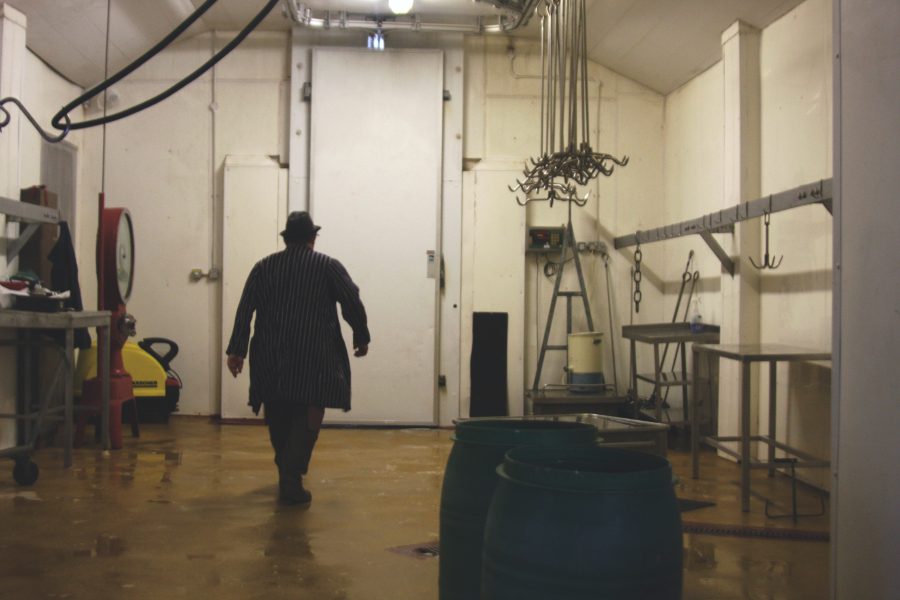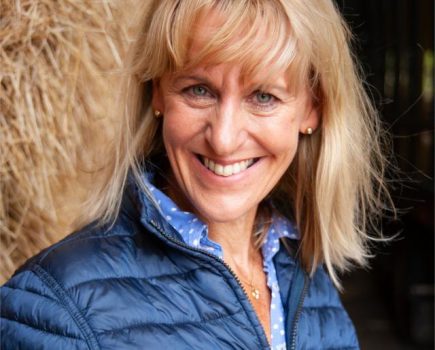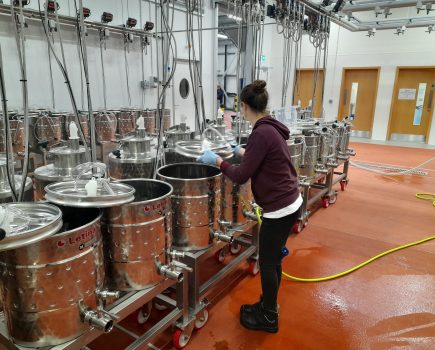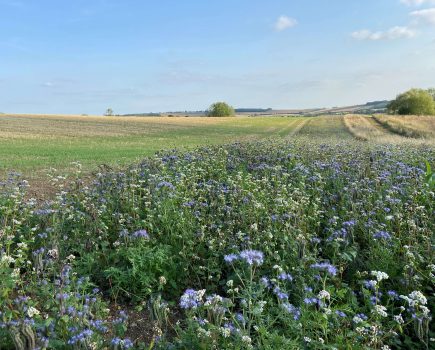Another threat to the future of small and medium-sized abattoirs has led to a stark warning that half of them could be forced to close.
Guy MacNaughton, founder of Local Abattoirs R Key (LARK), has pointed out that Food Standard Agency (FSA) proposals that would increase costs would seriously damage the industry, with a significant knock-on effect on livestock farmers across the South East and beyond.
He also pointed out that a £4m scheme launched by DEFRA last year with the aim of helping abattoir owners modernise their plants failed because it relied on the businesses putting in a significant amount of their own capital in order to qualify for the grants. “As we predicted from the outset,” Guy added, “no abattoir in the South East had the necessary capital to benefit from the scheme.”
The current crisis is around a review of the costs levied on small and medium-sized abattoirs, particularly the discounts currently given by the FSA to help businesses meet the costs of providing official veterinarians (OVs) and meat inspectors.
Peter Hewson, veterinary director of the Association of Independent Meat Suppliers (AIMS) told BBC Radio 4’s Farming Today programme that FSA proposals to increase OVs and inspectors would “single-handedly destroy the foundations of the meat industry”.
He was commenting on the FSA’s ‘call for evidence’ on the proposed changes, which the agency says reflect the fact that the increasing costs of providing inspectors and OVs need to be passed onto businesses. The consultation ended on 24 October.
Peter pointed to recent calculations that showed a medium-sized slaughterhouse in the UK paid around £3,000 a month currently as opposed to about £800 in France or Ireland. With the discount removed the cost would be about £8,000 a month – 10 times as much as a similar plant in France or Ireland. “It’s just not possible for them to survive on that sort of payment,” he added.
Guy MacNaughton said one smaller abattoir locally had calculated that its average monthly charges would rise from £110 to £1,020 under the proposals and would face closure as a result.
AIMS has also carried out research into the different ways in which countries interpret European Union (EU) regulations, with the FSA insisting on much tighter compliance by UK abattoirs.
Its report concluded that the FSA had “fundamentally misunderstood the requirements for the presence of OVs at slaughterhouses” and pointed out that this meant vets were unnecessarily being used to verify Food Business Operator (FBO) compliance as well as carrying out ante- and post-mortem checks.
That led, in turn, to overseas vets with poor English having to be overseen by an expensive management structure put in place by the FSA at additional cost, something that was not necessary in other countries.
In a letter to then Secretary of State for Environment, Food and Rural Affairs Steve Barclay after a meeting in Peasmarsh earlier this year, Guy MacNaughton summed up the situation by pointing out: “Urgent steps are necessary to resolve issues which have arisen as a result of the UK’s unique interpretation of Regulation 2019/624 and 627 which came into effect in December 2019.”
Guy, a tireless campaigner for the industry who came to the fore when Tottingworth Abattoir near Heathfield closed at the end of 2022, said AIMS and others had been trying for many years to persuade the FSA to reduce red tape around small and medium-sized abattoirs in order to save the industry.
In another letter, this time to Alistair Carmichael MP, the chairman of the Government’s Environment, Food and Rural Affairs Committee, he pointed out that Tottingworth had closed “because of over regulation, their appalling experiences of the FSA and FSA vets, and escalating costs”.
Referring to the FSA’s consultation as part of a review of the discounts applied to small and medium size abattoirs, he warned: “It is predicted 50% of these abattoirs will close, removing a vital network, already decimated, that supports livestock farmers across the country where demand is strong for local produce.
“Given the need to enhance food security and the critical role such abattoirs play, it is extraordinary that this can be occurring now.”
In the letter he suggested implementing a new regulatory regime for small and medium sized abattoirs which, amongst other things, would reduce the need for veterinary attendance and so the cost to the FSA.
He also called for more use of new technology to allow remote inspections, keeping the existing discounts and applying the ‘5% rule’, an EU concession based on national throughput that would in effect allow all the country’s smaller abattoirs to operate without the need for a full veterinarian presence.
On the use of technology, Guy pointed out: “After all, GPs have been undertaking remote consultations with patients since Covid-19.”
His letter concluded: “To avoid further loss of this vital infrastructure, reduced food security and resilience, and another nail in the coffin for small livestock farmers, will the EFRA committee play a part in ensuring the industry is supported?”
Guy told South East Farmer: “Under Sir Tony Blair’s Government, Lady Caroline Cranbrook was awarded an OBE for her support for small abattoirs. Now this new Government needs to finish the job of rebuilding the industry by stopping the regulator from regulating these businesses out of existence. After all, small businesses employ 61% of the UK workforce and generate £2.4 trillion of UK turnover.”
He added: “It’s a damning indictment of the way regulators work that although an FSA review of the 5% production threshold rule in April 2020 found that 50% of smaller abattoirs would benefit from reduced bureaucracy and lower costs, nothing came of it.
“Sir Keir Starmer pledged at a recent business summit to get rid of regulation that ‘holds back investment’. Well, he could make sure this applies to the rural economy to save our abattoirs and livestock farming in the UK by endorsing technology to enable remote inspection.”
“Consequences will be catastrophic”
South East Farmer correspondent Monica Akehurst has her say on the possibility of increased costs…
“As a livestock farmer, I cannot emphasise enough how crucial it is to have access to thriving abattoirs. Many smaller abattoirs have been forced to close, yet consumer demand for locally produced meat is strong.
“If we lose our remaining smaller abattoirs due to overregulation and the financial burdens that follow, the consequences will be catastrophic. This will impact animal welfare, grazing patterns and the overall viability of livestock farming, essential for the part it plays in meeting DEFRA’s drive for reversing habitat loss and reducing fossil-fuel inputs.
“Speaking at the International Investment summit in London on 14 October, Sir Keir Starmer said: ‘We will rip out the bureaucracy that blocks investment and we will make sure that every regulator in this country takes growth as seriously as this room does.’ Music to my ears… but is the Food Standards Agency listening? It is proposing an increase in costs.
“It’s in everyone’s interest to ensure that food is safe to eat; this is indisputable. Reducing red tape would lower costs, but regulators seem reluctant to take constructive action to support industry growth. Farmers and abattoirs would benefit from a change in mindset. I hope that the Labour Government succeeds in realising their aspirations.”
Photo: Angus D Birditt







